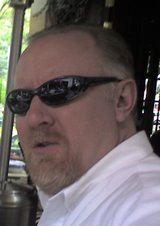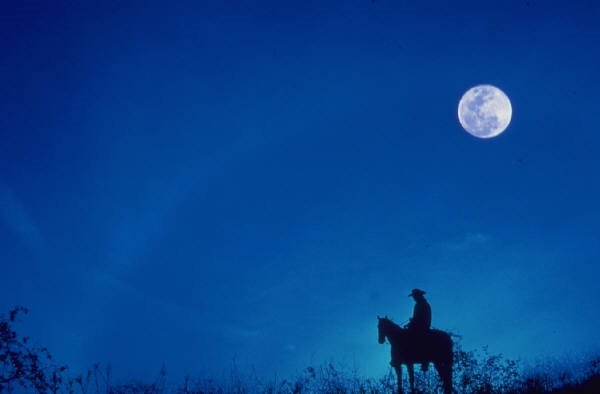"Swiping" saloon souvenirs—surreptitiously helping oneself to coasters, napkins, and even those nifty lighted beer signs—is almost de rigueur among college bar-hoppers.
Tom Wenger first caught the bug while traveling in Britain a number of years ago. Unlike American bars, British pubs featured bar towels sporting logos from unique breweries around the world. He won't say how he came by a supply of the towels—whether he and his friends spilled a lot of lager overseas or just managed to charm a number of generous servers—but one way or another, Wenger came home with enough of them to mop up after the rowdiest of keggers.
Wenger the college kid thought the towels, like most promotional items, were cool. But instead of haphazardly thumb-tacking them on the walls of his room, as a less inspired collegian might have done, he asked his mother to sew the towels together into a sort of beer banner or, as he prefers, beach towel. Whatever, it became a one-of-a-kind, must-have item among his fellow sudsers. "Everyone wanted to buy it, or wanted me to get them one," he says.
The old college try
But he had things to do after college, such as making a living. So for the next ten years, he toiled in the field of commercial real estate sales. In November of 1998, after tiring of a world he felt confining, Wenger decided to pursue a more free-flowing career. He looked to trends—particularly social drinking, the resurgent interest in fine wines, and the revival of the Martini and cocktails in general.
Then he remembered his British bar-towel creation and its popularity. Putting the pieces together, he decided to put his entrepreneurial efforts into his favorite college pastime. And he revived many of his college survival strategies to do it.
Friends: Wenger enlisted friends to help him load his car with a $1,000 worth of modular shelving, stained wood and track lighting, all of which was fashioned into a U-shaped kiosk at the Harrisburg (PA) East Mall.
Mom: Wenger's mother designed and sewed the black skirting around the kiosk, and then assisted with merchandising and customer service.
Haggling: Creative bargaining got him down to a $40,000 initial investment for rent and merchandise.
Spontaneity: High energy and decisiveness meant foregoing a costly period of unpaid research and preparation. In one month, he was up and running on the road to financial independence.
While that sounds freewheeling and easy—he calls it his "stock and rock" philosophy—his advice to profit-minded college kids or any would-be entrepreneur is rock-solid: "Do your homework. But definitely get into it."
Wenger's homework led him to a company that manufactures what turned out to be popular British pub wear. So he had product to sell.
He found that cart negotiation and placement was a complex process, one he learned through trial and error. "I had been in commercial real estate, so I knew something about negotiating rent. But it really ended up focusing on what was available... We jumped in with both feet." The center-court location he thought would be an excellent spot for convergent traffic turned out to be the proverbial half-full/half-empty beer mug: the Mixology kiosk was directly across from a giant sand castle, the talk of the town that drew considerable interest and lots of traffic. But much of that traffic would get to his kiosk and then turn away from it to look at the castle.
As for traffic counts, he expected more during weekdays in November. Despite busy weekends, it was the last two weeks of December that were his real money-making period. "You hear stories about how half your money is made before December 15th, and the other half is made after December 15th. It really did seem to be true in my case."
Adding to the mix
Despite ups and downs, and within just two months, his first season generated enough revenue—and weight with creditors—to help finance an in-line location in Camp Hill. And last year he expanded into Camp Hill's Capital City Mall with RMUs featuring Yuengling Beer glassware, T-shirts, sweatshirts and collectibles. "[These items] were popular offerings from my first cart and were marketed at each mall." He also operated an RMU at both malls, featuring Christmas ornaments and hand-made jigsaw puzzles from England. These in addition to his anchor, the Mixology cart at Capital City Mall.
Through the pilot expansion, he found he could locate two RMUs close together and have one employee operate both of them. "It definitely saved me a lot of money in labor, and allowed me to use the same credit-card terminal and the same phone line," he says.
At the height of business, he now employs 12 people. And after two years, he finds little direct competition. "There's still no one here doing quite the same thing."
Wenger credits a great deal of his success to the kiosk concept, which provided an admitted rookie entrepreneur an opportunity for manageable forecasting, start-up and risk. "I was never really interested in traditional retail—more mail order and the Internet," he says. "But now, as a result of starting the kiosk, I've found myself growing a successful retail business. Even if the business had failed, it would not have been as devastating as if I had started right off the bat with a store."
As for hot products, he says cocktail shakers are popular right now, "but we carry it all—everything from bottle stoppers on up," he says. "We'll even build a full wine rack in someone's house." Not that Wenger is unaware of the dangers of drinking and driving, nor is he promoting it. He feels people are drinking more responsibly, and that his products encourage that. "More people are drinking at home and want products for in-home use," he says. "It's made it the right time for this business."
While he admits to always having enjoyed a good drink or two, Wenger insists that Mom and Dad's money didn't go to waste. He did graduate (with a bachelor's degree in Business Management from Juniata College)... and has since advanced to "master of Mixology."
As for the future, his long-term strategy for the business includes the Mixology website and maybe franchising, as well. "Once you're in business other doors will open up for you," he says. Although his former boss extended an open invitation to return to real estate, Wenger took a shot at success, and never looked back.
Tom R. Arterburn is Executive Director of The Resume Institute.


No comments:
Post a Comment